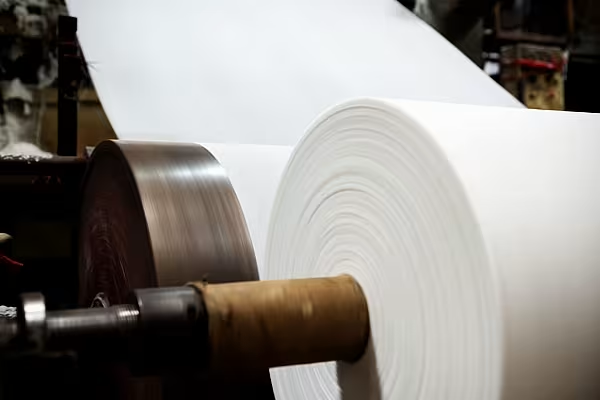Diaper-wearing baby boomers are coming to the rescue of the beleaguered paper industry.
As the world population ages, sales are climbing for absorbent hygiene products that have gotten more comfortable and discreet. Demand is projected to grow 4 percent in 2017, according to ERA Forest Products Research, boosting prospects for companies including International Paper Co. and Domtar Corp. They’re expanding production of the moisture-capturing fiber known as fluff pulp used in diapers and tampons.
The shift is providing welcome relief for an industry hurt by the emergence of the digital era and paperless communication. As North American producers expand output of fluff grades, the market for traditional pulp is tightening. Prices have been rising in recent months with more gains expected in March, according to Bloomberg Intelligence.
“The fastest-growth market is adult incontinence,” said Kevin Mason, the managing director of ERA Forest Products Research in Kelowna, British Columbia. “That baby-boom generation, that demographic is moving into that area, and it’s going to help boost the overall demand.”
U.S. retail sales for products targeting adult incontinence reached almost $2 billion in 2016 and are projected to rise another 9 percent in 2017 and 8 percent in 2018, said Svetlana Uduslivaia, the head of industry research at Euromonitor International. Papermakers in the South, including Memphis, Tennessee-based International Paper, are poised to benefit as they produce almost 90 percent of world’s fluff pulp.
Aging Population
In 2012, there were 562 million people globally aged 65 and older, and that increased almost 10 percent by 2015, according to the U.S. Census Bureau. As the baby-boomer generation -- those born from 1946 to 1964 -- joins those ranks, the growth will accelerate. The population group of older people is projected to reach 1.6 billion by 2050. In turn, demand for fluff pulp will grow at about 3 percent a year, Domtar estimates.
Domtar spent about $160 million to convert paper output to fluff-pulp production in Arkansas. That will help double its fluff-pulp capacity to 980,000 metric tons, according to Bloomberg Intelligence. It’s now become the No. 3 producer, trailing International Paper and Georgia-Pacific LLC, which is controlled by Koch Industries Inc. The move to fluff will probably boost its earnings per share by about 4 percent in 2017 and 3 percent in 2018, according to Bloomberg Intelligence.
“There’s a lot less taboo around incontinence issues, and there’s a lot more education around it,” said Nicholas Estrela, a spokesman for Montreal-based Domtar.
News by Bloomberg, edited by ESM. Click subscribe to sign up to ESM: The European Supermarket Magazine.














